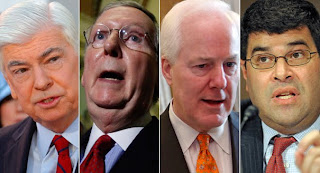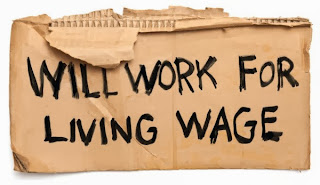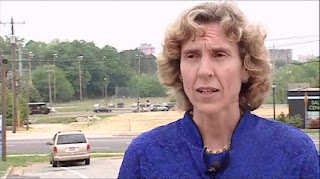

Bi-partisanship Banking Reform Stalls
The chances of a bi-partisan compromise on financial reform took another significant hit Tuesday as top Senate Republicans accused the White House of derailing a deal on derivatives trading and bashed the Democratic legislation as perpetuating Wall Street bailouts.
The Republican attacks drew a quick rebuke from the White House and pushed an issue long viewed as ripe for bipartisan agreement deeper into partisan territory. The sharp turn in the tone of the debate suggests Democrats might have to struggle to peel off more than a handful of Republican votes, if that.
After meeting with his members, Senate Minority Leader Mitch McConnell (R-Ky.) said he had “naively” assumed the bill would move forward on a bipartisan basis, and he predicted the overhaul legislation written by Banking Committee Chairman Chris Dodd (D-Conn.) would face “overwhelming Republican opposition.”
“I would say all signs we get from the White House is they’re not interested in talking, they’re not interested in making a deal with us,” McConnell told reporters. “They want to jam through a totally partisan bill. And if they do that, and it looks like the Dodd bill, it will guarantee perpetual taxpayer bailouts of Wall Street banks.”
Republicans are gravitating toward a strategy that defies the conventional wisdom held by Democrats — that the GOP, from a political standpoint, cannot throw up uniform opposition to Wall Street reform as it did with health care reform. A senior Senate Republican aide said the conference believes it has “a strong case to make as to why the bill is bad.”
“People expect us to say no to really bad ideas,” said Sen. John Cornyn, chairman of the National Republican Senatorial Committee. “The Dodd bill ... has a lot of problems.”
In a hastily assembled conference call with reporters Tuesday afternoon, Deputy Treasury Secretary Neal Wolin disputed McConnell point by point, saying charges that the bill would perpetuate Wall Street bailouts “aren’t consistent with the plain language of the bill.”
At the same time, White House deputy communications director Jen Psaki accused Republicans of taking cues from party strategists — naming GOP pollster Frank Luntz, who advised Republicans to attack President Barack Obama’s financial reform plans by calling them “bailouts.”
She said McConnell “reads Luntz’s line and follows Wall Street’s orders.”
“No matter what the bill actually does, they’re going to call it a bailout because that’s what the polls tell them to do,” Psaki wrote on the White House website. “The Senate bill explicitly mandates that a large financial firm that faces failure will be allowed to fail, and it explicitly prohibits the use of any funds to ‘bail out’ a failing firm.”
The back-and-forth appeared to further alienate Republicans and Democrats, who have been struggling for months to reach a compromise on regulatory reform, as tensions over the backroom negotiations spilled into the open. It comes ahead of a White House meeting Wednesday between Obama, McConnell, House Speaker Nancy Pelosi, Senate Majority Leader Harry Reid and House Minority Leader John Boehner.
Dodd and Alabama Sen. Richard Shelby, the ranking Republican on the Banking Committee, said they continue to negotiate a compromise on the overall regulatory bill. However, Shelby joined McConnell at a press conference after the Republicans’ weekly policy luncheon and criticized the process.
“We can get a good bill, if they will meet us halfway. And they haven’t yet,” Shelby said. “I hope they will. We continue to be open. But we’re not open to a bad bill, because that would be continuing what we’re doing.”
Visit msnbc.com for breaking news, world news, and news about the economy
McConnell’s criticism of the bill came shortly after Georgia Sen. Saxby Chambliss, ranking Republican on the Agriculture Committee, accused senior administration officials of attempting to thwart a compromise on one of the last major elements of regulatory reform — a proposal to regulate risky derivatives trades, which falls under the jurisdiction of the Agriculture and Banking committees.
In contrast to the partisan bill produced by the Banking Committee, there was some expectation that Chambliss and Agriculture Committee Chairwoman Blanche Lincoln (D-Ark.) would reach a bipartisan deal on their portion of the bill to tighten restrictions on derivatives.
But that outcome looked remote after Chambliss issued a statement charging Treasury Secretary Timothy Geithner and Gary Gensler, chairman of the Commodity Futures Trading Commission, with forcing “politics in the pathway of meaningful financial regulatory reform.”
“They seem to be intent on making this a partisan issue without Republican input, which in no way benefits the American people who have endured economic distress as a result of the recent financial crisis,” Chambliss said.
Senate Republicans said Chambliss and Lincoln were nearing a deal, but when Chambliss declined to commit Republican support for the overall bill without seeing final language, the administration pulled back support for any emerging compromise.
A White House official told POLITICO that the administration had expressed concerns to Lincoln in the past “72 hours” about the direction of the derivatives language.
Lincoln aides said she broke with Chambliss over “mandatory exchange trading” — which would place derivatives trades on central market exchanges, making information about the derivatives available in a central location. Currently, derivatives are usually executed as private deals between two parties.
Lincoln supported the mandatory exchange trading. Chambliss didn’t. Once it was clear that a deal with Chambliss was not possible, Lincoln decided to craft a proposal that could win as much support as possible within her own Caucus, aides to the Arkansas Democrat said.
Lincoln pushed ahead with her plan Tuesday, briefing Agriculture Committee Democrats on an approach that was more restrictive than many had expected.
Lincoln’s plan is likely to burnish her standing with progressive groups inside the Democratic Party ahead of her May 18 Senate primary, where she is facing a challenger from the left, Lt. Gov. Bill Halter. Lincoln drew fire from liberals in her party for opposing the public health insurance option in the recent health care reform bill.
And the shift drew immediate praise from a leading progressive voice in the Senate on derivatives, Sen. Maria Cantwell (D-Wash.). “Out of the House and the Senate bills that have been on the table before, it sounds like Blanche Lincoln is going to put the strongest reforms on the table,” she said.
Lincoln would require “mandatory exchange trading” for most derivatives contracts, though there would be an exemption from such requirements for non-financial institutions.
Lincoln’s position is similar to the provision approved by the House Financial Services Committee and is “at least as stringent” as that called for by the Senate Banking Committee, her aides said. Under Lincoln’s proposal, manufacturers, agriculture companies and commodities producers would not be covered by a new requirement to “clear” the trades, or have them settled by a third party.
Chambliss said he continues to talk with Lincoln but the White House “has got to send a message that it wants to see a bipartisan bill, and they haven’t done that.”
“The pushback is kind of brand new,” Chambliss said. “For them to come up and push back on the bipartisan concepts that we’re thinking in terms of [derivatives] is somewhat surprising, because we thought we were working well.”
Wolin rejected Republican assertions that the administration had turned away from bipartisanship.
“We have worked for more than a year with Democrats and Republicans, and we will continue to work with Republicans and Democrats,” Wolin said.
But, he added, Obama and top administration officials have made clear they won’t accept compromises that weaken the Senate bill. “It is important and urgent that we get legislation — but that we get good, strong legislation,” Wolin said.
Sources: Bloomberg News, BOFA, CNN, Politico, Youtube, Google Maps




































































.jpg)























No comments:
Post a Comment